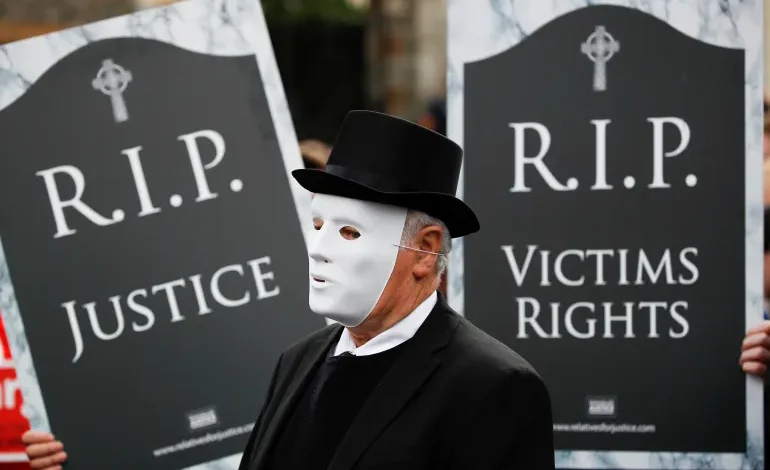UK’s controversial Northern Ireland ‘legacy’ Bill: All you need to know

The House of Lords, the unelected upper chamber of the UK parliament, will review amendments made to a controversial Northern Ireland Troubles (Legacy and Reconciliation) Bill on September 5.
The bill that would offer those accused of murder conditional immunity has been heavily criticised by victim groups, human rights organisations and all of Northern Ireland’s political parties.What is the Northern Ireland legacy bill?
The bill, which is almost 100 pages long, was introduced in May 2022 and promotes the establishment of an independent commission that would deal with more than 1,000 unsolved killings.
The bill would offer a controversial conditional amnesty to those accused of the killings in exchange for cooperating with the commission in their investigations.
According to the UK government, the bill aims to “address the legacy of the Northern Ireland Troubles and promote reconciliation”.What were ‘the Troubles’?
The Troubles were a bloody, decades-long sectarian conflict in Northern Ireland between the overwhelmingly Protestant unionists, or loyalists, who wanted the region to remain part of the United Kingdom, and the overwhelmingly Catholic nationalists, or republicans, who wished to see Northern Ireland become part of the Republic of Ireland.
In 1969, the British army was deployed to counter the uprising, and fighting continued into the 1990s until it ended with the Good Friday Agreement.
The political deal, also known as the Belfast Agreement, was signed on April 10, 1998 by the British and Irish governments and Northern Ireland’s key political parties, including Sinn Fein, the political wing of the Irish Republican Army (IRA).
How many legacy cases are there?
Overall, more than 3,500 people were killed, and it is estimated that more than 40,000 people were injured in the conflict.
Human rights group Amnesty International says that “in most cases, no one has ever been held responsible, and the truth of what happened has gone uncovered”.
Chris Heaton-Harris, the Northern Ireland secretary, said after the review that the Commons were “grateful” to the House of Lords for their suggestions.
“However, we cannot agree to an amendment which would altogether remove the conditional immunity clauses from the Bill.”
“This Government believes that the conditional immunity provisions will be key in helping to generate the greatest volume of information, in the quickest possible time,” he wrote in a statement.
Who is opposing the Northern Ireland legacy bill?
Sinn Fein, currently the largest party in the Northern Ireland Assembly, the devolved legislature of Northern Ireland, has strongly opposed the bill, with its deputy leader, Michelle O’Neill, labelled it a “denial of human rights of victims and their families”.Speaking at a recent convention commemorating a five-year hunger strike during the Troubles by Irish republican prisoners in Northern Ireland, she called the bill both “antidemocratic” and “unjust”.
The legislation’s sole purpose, she said, was to “conceal the truth and protect British state forces” as she urged the British government to withdraw this legislation.










